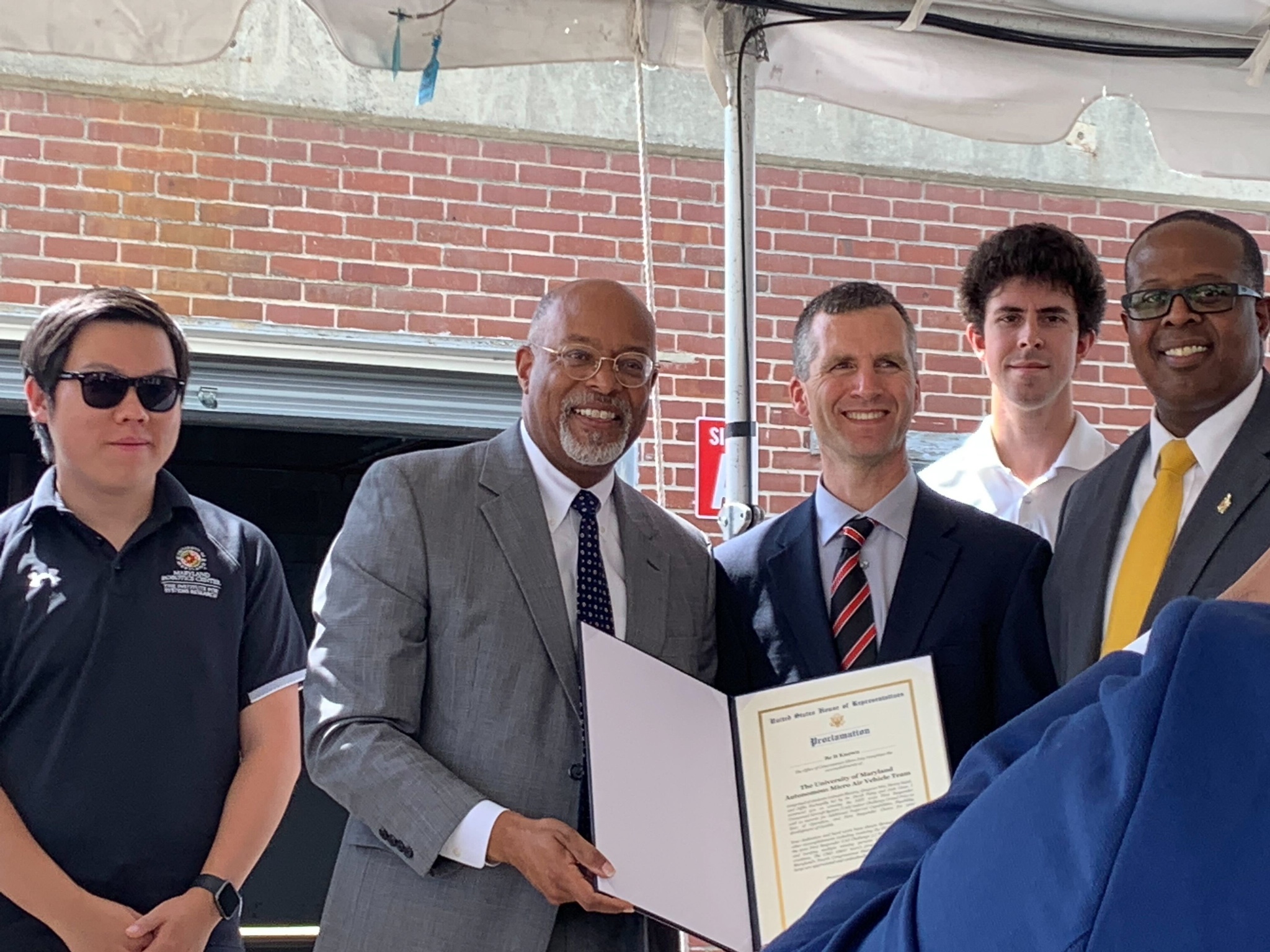Rep. Glenn Ivey (D-Md.) visited the Maryland Fire and Rescue Institute Wednesday to award a citation to a team of current and former University of Maryland students who developed an award-winning drone that can safely perform search-and-rescue missions.
The drone’s creators, Qingwen Wei and doctoral aerospace engineering student Animesh Shastry, showcased the capabilities of their creation, called Gambit, in a live demonstration Wednesday to first responders, university staff and members of Ivey’s office — drawing praise from several attendees.
The team — including Wei, who graduated from this university in 2023, and Shastry — won the National Institute of Standards and Technology first responder UAS indoor challenge, winning a prize of more than $152,000.
[Metro’s Green Line to reopen Saturday after month-long closure]
Gambit, an autonomous micro air vehicle, allows for search-and-rescue missions to be undertaken with little risk to those operating it for several crisis situations, including collapsed buildings, natural disasters and hostage situations. Gambit also includes high-definition cameras, night vision, and thermal imaging cameras.
The drone’s capabilities were demonstrated by Wei, the design lead, who piloted the drone around a test facility at the institute. Through a video feed, audience members could see the drone maneuver through the building and find mannequins depicting disaster victims.
Due to the drone’s lack of a GPS system, Gambit can move inside narrow areas, such as collapsed buildings, according to Derek Paley, the director of the Maryland Robotics Center.
Gambit drew praise from several attendees, including Ivey and members of this university’s administration.
[College Park residents to vote on four-year terms in November election]
Ivey stressed that Gambit would help save the lives of both disaster victims and first responders due to its potential impact on a wide range of crisis situations.
“We talked about a couple of the applications potentially but as I was sitting here watching it, the possibilities that sprang to mind are potentially endless,” Ivey said.
Samuel Graham Jr., the engineering school’s dean, echoed Ivey’s thoughts and said that Gambit will make an impact beyond the immediate College Park community.
“We are proud of the game-changing activities that we have and the impact that we have on the local community, as well as the broader society,” Graham said.
University president Darryll Pines also praised the “first of its kind” drone. He vowed that the university would continue supporting Wei and Shastry moving forward, pointing to his background as a former aerospace engineer.
Paley, the team’s faculty advisor, is hopeful for the future of Gambit and its ability to significantly aid first responders.
“We believe that one day, these drones will be commonplace,” Paley said. “First responders will have these drones and have the ability to investigate the interior of buildings in advance of going into dangerous conditions.”



